Profile: Douglas Tompkins, billionaire-turned-conservationist
- Published
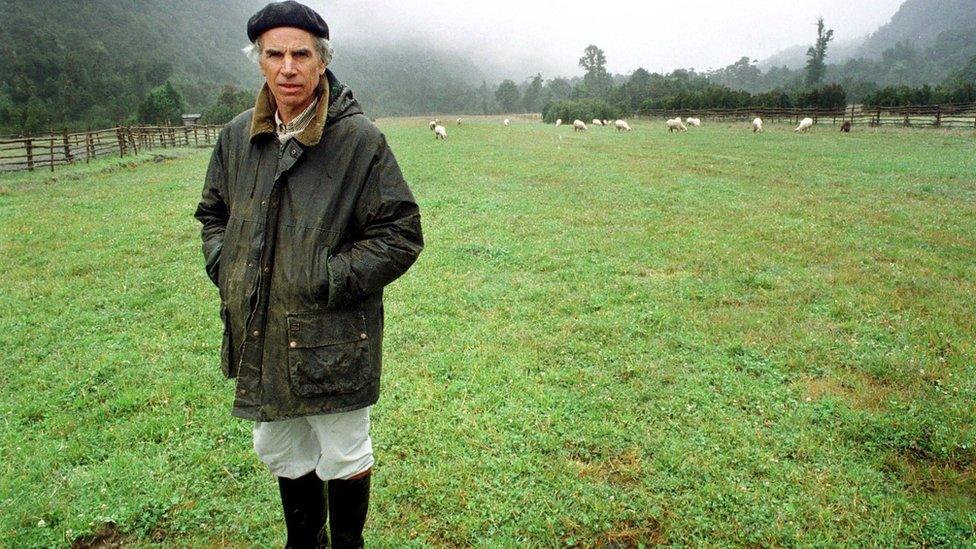
Douglas Tompkins left the corporate world for the wilds of Chile and Argentina
Douglas Tompkins made a fortune selling high-end jackets and adventure gear as the founder of North Face, but he spent his final years railing against the very corporate world that made him a billionaire.
"There's no doubt whatsoever that there's no future in capitalism," he said in a 2012 interview, external. "It's probably no more than 500 years old, and it's demonstrating over and over again that it is destroying the world."
He moved to the wilds of Chile and Argentina, espousing an anti-consumerist philosophy, buying huge swaths of land and making enemies along the way.
To some he was an environmental hero, but many in South America viewed him with suspicion, unconvinced his motives were altruistic.
North Face founder dies in kayak accident
After founding The North Face as a small ski and backpacking gear shop in San Francisco in the 1960s, Mr Tompkins helped his then wife start Esprit, a clothing brand.
Both companies would grow into multinational clothing giants.
But in the late 1980s, he left the business world for South America in order to pursue environmentalism, co-founding the Foundation for Deep Ecology in 1990.
He often said that he felt lucky to have escaped the shackles of the corporate class and, in his own words, do something with "meaning".
That, it seems, he unquestionably did, spending millions of dollars buying up swathes of pristine land in Argentina and Chile - areas in which he claimed to feel like a "de facto citizen" - and turning them into conservation areas.

The North Face has grown from a small ski shop into an international clothing brand
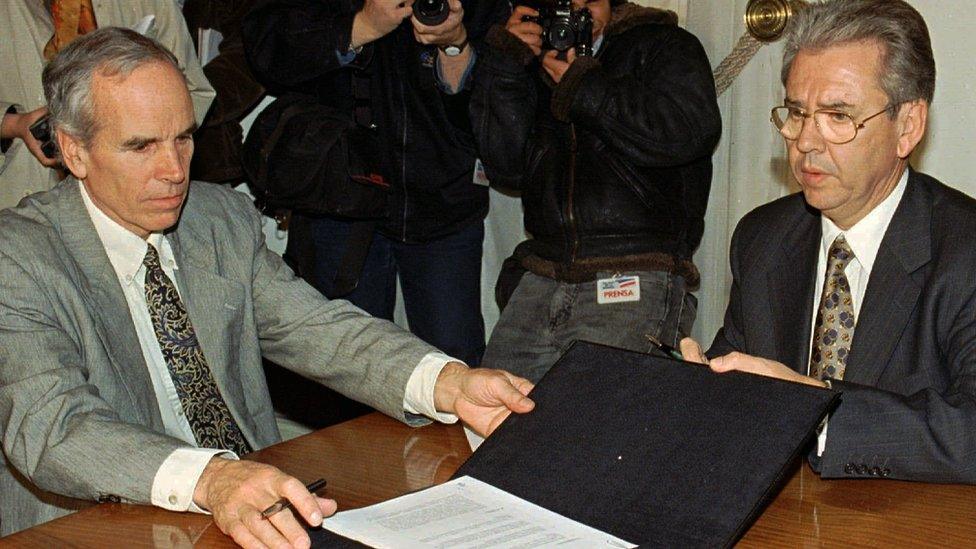
Mr Tompkins, pictured with the Chilean president's chief of staff in 1997, had often rocky relations with politicians
In a statement after his death in a kayaking accident, Tompkins Conservation, which represents his family's various environmental foundations, called him "one of the earth's foremost conservationists".
He and wife Kristine McDivitt Tompkins, it said, had purchased some 2.2 million acres of land, including Pumalin Park in Chile, one of the world's largest private nature reserves, made up of forests, lakes and fjords stretching from the Andes mountains to the Pacific.
But their large-scale South American activities have not been immune from controversy or opposition.
Right-wing Chilean politicians accused the US couple of land grabbing, while local media have sometimes peddled conspiracy theories alleging all sorts of "dark" motives lying behind their activities, according to a 2009 profile, external.
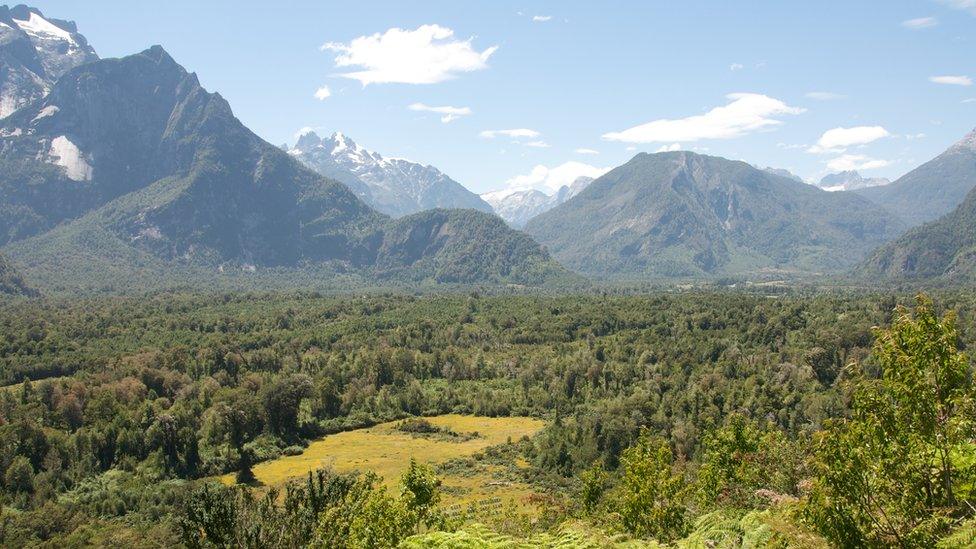
Pumalin Park was one of Mr Tompkins' largest projects
As a fierce activist, Mr Tompkins also faced-off with corporate interests and their political backers, from loggers to salmon exporters and energy companies hoping to dam Patagonia's rivers.
Despite the heat, he took a bold stand - asserting that he was acting in the best interests of his adopted homelands.
"It is really your behaviour that determines whether you're a patriot," he once said.
"If you're trashing your own country, ruining the soils, contaminating the waters and the air, cutting down trees, overfishing the lakes, rivers and oceans, you're not much of a patriot."
- Published9 December 2015
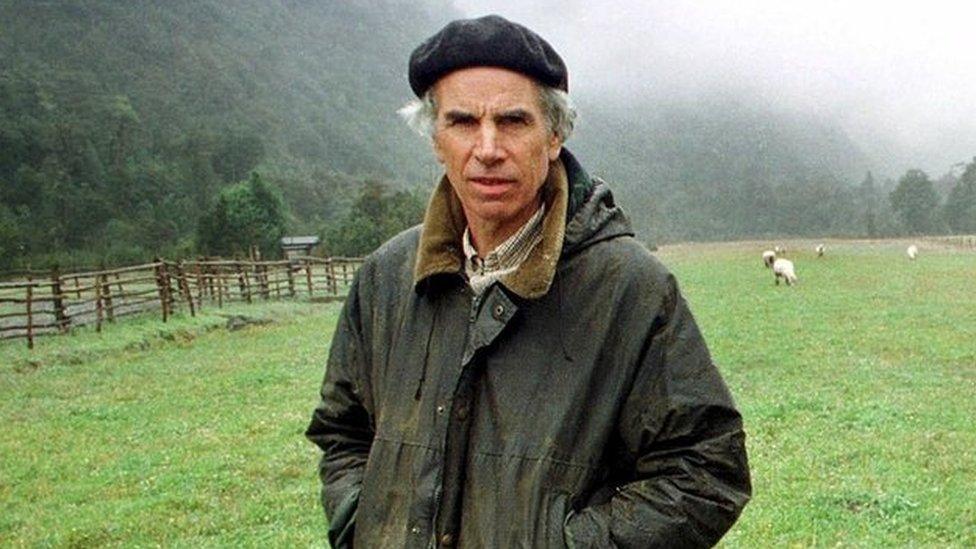
- Published11 December 2023
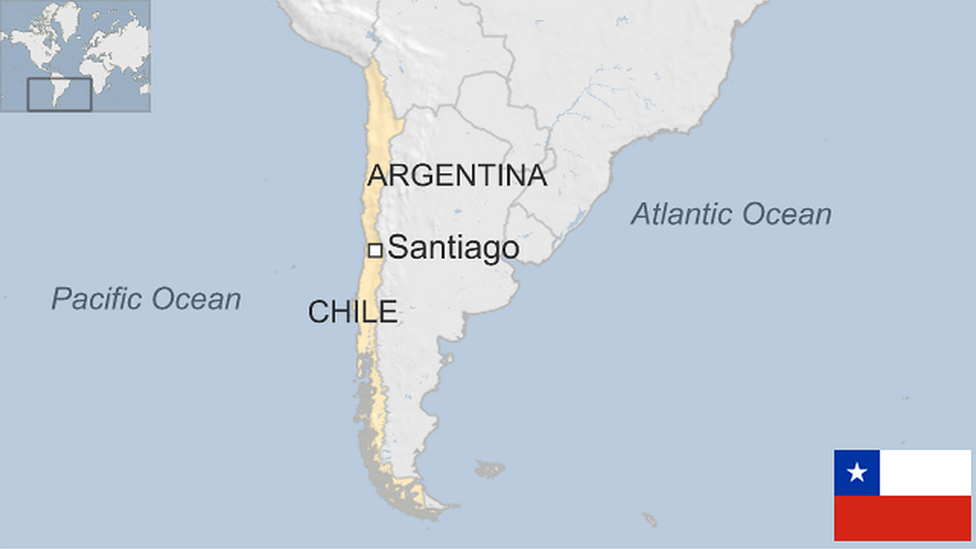
- Published28 February 2015
